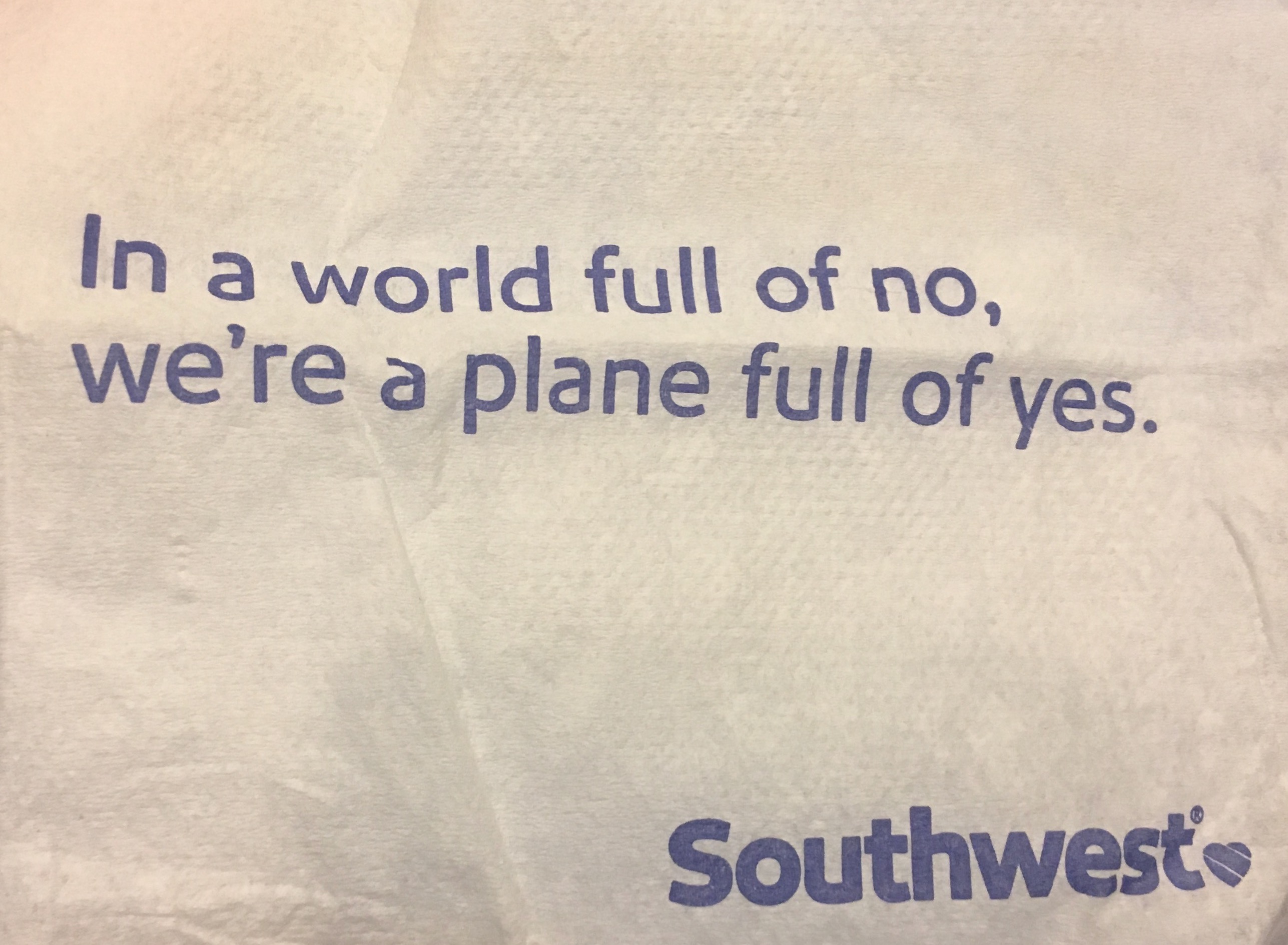After a few bad customer service experiences recently, I’ve been thinking a lot about the question: do company messages match customer experiences? In a conversation with a friend just days ago, she said, “You’re sensitive to it because of what you do.” Am I?
I took time this week to Google the question. Data shows, I’m not alone. According to a Microsoft study called State of Global Customer Service Report that polled 5,000 people from Brazil, Germany, Japan, the United Kingdom and the United States customer service can make or break a company.
- 96% of those responding say customer service is important in their choice of loyalty to a brand.
- More importantly, people will stop doing business with you because of poor service.
- Of U.S. respondents, 59% said they will stop doing business with a brand when there’s bad service.
- And 80% of respondents believe it takes some or even too much effort to resolve their customer service issues.
Your brand isn’t created with carefully chosen PMS colors for logos and marketing materials. It’s not derived during a two-hour meeting where a marketing team brainstorms. And it’s not created by someone sitting in their office thinking up creative words to explain what you do. The brand comes from your customers’ experiences.
You may be reading this begging, do tell, what were those bad customer service experiences that got you thinking? Truth be told, a few happened with small companies, while others were with globally branded businesses. Some were minor irritations and others were so frustrating that I have to add an exclamation point to this sentence!
Minor irritation: Just last week, I contacted a company locally for a quote to work on our landscaping. The voicemail said to go to their website and complete the form. I did. No one called me. This week a quote landed in my email. Just me or was that weird. How does this company even know what I want or need? Their slogan: “We take pride in your outside.” I guess they do since they didn’t come inside to talk with me.
 Each week we read about airlines delayed due to weather or maintenance. Fliers get frustrated when there’s not much communication to help them understand what’s happening. Airlines do what’s required by FAA law (so says my pilot friend). But their slogans all say, “Making Traveling a Pleasure” (Delta) or “In a world full of no, we’re a plane full of yes.” (Southwest) The stories we read don’t reflect how airlines are making travel gone wrong a pleasure or giving us a yes. In the past two weeks Delta left customers stranded for 8 and then 18 hours. That’s not a traveling pleasure.
Each week we read about airlines delayed due to weather or maintenance. Fliers get frustrated when there’s not much communication to help them understand what’s happening. Airlines do what’s required by FAA law (so says my pilot friend). But their slogans all say, “Making Traveling a Pleasure” (Delta) or “In a world full of no, we’re a plane full of yes.” (Southwest) The stories we read don’t reflect how airlines are making travel gone wrong a pleasure or giving us a yes. In the past two weeks Delta left customers stranded for 8 and then 18 hours. That’s not a traveling pleasure. 
Major irritation: I called Southwest requesting an easy fix to a booking (please add my middle name) and can you double check the update doesn’t move me from early boarding (which has happened to me twice with a booking change)? The agent wouldn’t let me speak but continued to tell me it won’t happen, no worries and here’s why. After asking several times to speak to her manager, she put me on hold for way too long. The manager called me to apologize and make the edit and double check the booking. If the agent had only known they’re a “plane full of yes!”
After suffering horrible publicity in recent years, United finally figured it out. We took a trip overseas on United in June. Of course, the flight was overbooked. But instead of coming on board and telling someone you have to go, they offered a large sum of cash before we boarded. If I recall the offer was $5,000 per person![]() . A small price to pay to avoid negative publicity and unhappy customers. United’s slogan: “Connecting People. Uniting the World.” On this occasion they connected us passengers because we were all talking about the offer!
. A small price to pay to avoid negative publicity and unhappy customers. United’s slogan: “Connecting People. Uniting the World.” On this occasion they connected us passengers because we were all talking about the offer!
So how does a company do it right? I’m going to brag on a client. Larry Howald owns and operates Howald Heating, Air Conditioning and Plumbing. He is truly committed to customer service. They have a published promise that we’ve incorporated into their company message.
Last year, we were curious if the team was hitting the mark. The customer team welcomes feedback to continuously improve, so we asked the customer. Turns out 95% of them said they’re highly satisfied with the service they get from the client. There were some issues uncovered in that 5%, and the client proactively worked on improving those items. Best of all, the client wants to do another customer survey to ensure they continue hitting the mark and that means their brand is reflected in their service.
If you’re reading this thinking, I can’t tell you what my customers would say about my company, but also thinking—I should know! Let’s talk. Email me or call, 317-733-8700, ext. 1. We help clients “communicate their image” through promotions, publicity, emarketing and more. And we have a proven process that supports finding out what your clients think to develop an authentic company message and strategic public relations plan.
